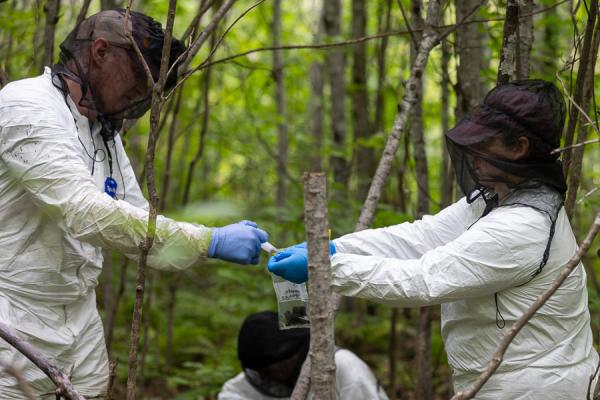Research roundup: University of Minnesota study maps genetic architecture of Border Collie collapse, finds disease is heritable
January 21, 2022

University of Minnesota researchers have for the first time found that Border Collie collapse (BCC) is a heritable condition in a study providing the first evidence of the role of genetics in shaping the disease.
BCC commonly affects the health of border collies and other highly active herding breeds. The condition, triggered by strenuous exercise such as herding, fly-ball play, or agility, causes a range of distressing symptoms: During a collapse, dogs may appear disoriented, fall to the side, drag their limbs, or struggle with their gait for up to 30 minutes. Though seeming to recover fully from an episode, affected dogs are often restricted from activity and retired from competition.
The role of genetics and heritability in the condition had been unknown. Now, University of Minnesota researchers have recently published findings from a study seeking to clarify the role of genetics in this complex disease by investigating its underlying genetic architecture.
Using DNA from blood samples of 343 affected and healthy dogs, they identified genetic markers associated with BCC and established the disease’s genetic architecture. Approximately 2,400 DNA sequence changes or single-nucleotide polymorphisms spread across all of a dog’s chromosomes contribute to a dog’s susceptibility to BCC, the team found. With thousands of genetic variants influencing the disease traits to greater or lesser extents, BCC is considered a moderately to highly heritable disease with complex genetic and environmental factors contributing to disease risk. Similar genetic risk has been shown in related breeds including Australian shepherds, Shetland sheepdogs, and whippets.
Going forward, additional whole-genome sequencing of these breeds can better quantify genetic risk and the gene mutations of greatest concern. These genetic variations could be targeted by future diagnostic tests to scan for susceptibility to the disease. Ultimately, the diagnostics could help veterinarians identify BCC in affected dogs and could improve the ability to predict and manage the disease course. Additional genetic study of BCC may also inform breeders looking to reduce disease prevalence in populations affected by collapse.
Genetic disease experts James Mickelson, MS, PhD, in the Department of Veterinary and Biomedical Sciences, and Professor Molly McCue, DVM, MS, PhD, DACVIM—along with team members Katie Minor, RN, and Elaine Norton, DVM, MS, PhD, DACVIM—investigated the genetic architecture underlying BCC. Genetic architecture outlines the genetic contributions to a trait by identifying the genetic variants that influence it and the magnitude of each of their effects. It also takes into consideration the frequency of the genetic variants and their interactions with each other and the environment.
Read the paper in the journal Genes. To support further canine genetic research, visit the CVM’s Canine Genetics Research Fund. The project was funded by the American Border Collie Association, the Border Collie Society of America, and the Australian Shepherd Health and Genetics Institute.


